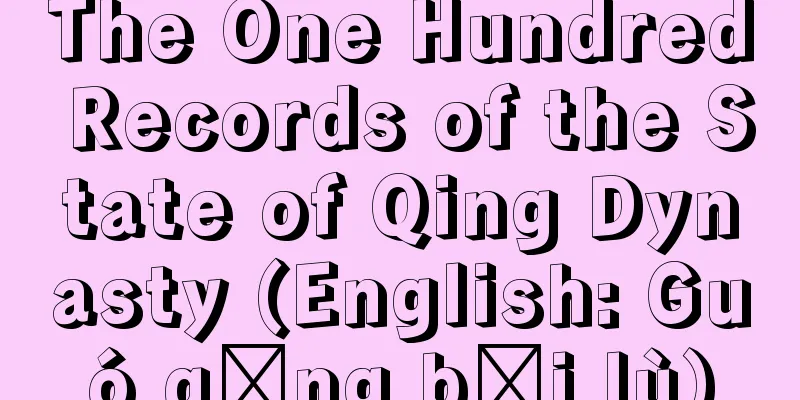Chief vassal - Chief retainer

|
After the collapse of the party cabinet due to the May 15 Incident in 1932 (Showa 7), this person was given a political voice in the Imperial Court regarding matters such as the selection of the prime minister. It is not an official title. Since the mid-Meiji period, the selection of the successor prime minister when the cabinet resigns en masse has been done by the genro, but since the end of the Taisho period, Saionji Kinmochi has been the only genro. After the May 15 Incident, Saionji recommended Saito Makoto for prime minister, but in August 1957, he expressed his intention to decline the position of genro to Interior Minister Makino Nobuaki, citing his advanced age and poor health, and asked him to create a new method for selecting the prime minister. In the end, the genro's decline did not come to fruition due to strong opposition from those around him, but a proposal was made for the method of selecting the successor prime minister, in which the genro would make a recommendation in consultation with the Interior Minister and senior vassals as necessary, and in January 1958, it was submitted to the Emperor and adopted. The scope of the senior vassals included the President of the Privy Council and former officials of the Prime Minister (those who were given the same treatment as they had been in office even after retirement due to their outstanding achievements). Since then, although not every time, senior vassals have also been included in the discussions to select the successor Prime Minister. [Awaya Kentaro] [Reference] |Source: Shogakukan Encyclopedia Nipponica About Encyclopedia Nipponica Information | Legend |
|
1932年(昭和7)の五・一五事件による政党内閣崩壊後、首相の選考などに関し宮中での政治的発言力を与えられることになった人物。官制上の職名ではない。内閣総辞職の際の後継首相の選考は、明治中期以来、元老たちによってなされてきたが、大正末から元老は西園寺公望(さいおんじきんもち)ただ1人となった。西園寺は、五・一五事件後、斎藤実(まこと)を首相に推薦したが、32年8月、牧野伸顕(まきののぶあき)内大臣に高齢病弱を理由に、元老辞退の意思を示し、新しい首相選考方式の作成を依頼した。結局、元老辞退は周囲の強い反対で実現しなかったが、後継首相選考方式のほうは、元老が必要に応じて内大臣や重臣と協議して推薦する案が作成され、33年1月、天皇に内奏されて採用された。重臣の範囲は枢密院議長と首相の前官礼遇者(功労顕著により、退官後も在官中の待遇を与えられた者)であった。以後、毎回ではないが、重臣も後継首相の選定の協議に加わることになった。 [粟屋憲太郎] [参照項目] |出典 小学館 日本大百科全書(ニッポニカ)日本大百科全書(ニッポニカ)について 情報 | 凡例 |
<<: Moral education - shuushinkyoiku
Recommend
Kitai Gorod
...The time difference with Japan is 6 hours. [Ci...
Cassia
...A shrub of the legume family (illustration) th...
Zampa, L. (English spelling) ZampaL
...In America, this was also called "Italian...
Khanka Lake (English spelling) Ozero Khanka
A lake on the border between China (Heilongjiang P...
Lende
…coxa (Latin) can mean both hips and buttocks, ju...
Creangǎ, Ion
Born: March 1, 1837 in Humuresh, Moldova Died: Dec...
Takeda Chiyosaburo
1867-1932 A bureaucrat and sports coach from the ...
Golden turtle
Sake from Shiga. The name of the sake comes from &...
Levitov, Aleksandr Ivanovich
Born: August 1, 1835. [Died] January 16, 1877. Mos...
Dmitrievsk
…Together with the nearby Donetsk, it is the core...
Functional
A functional is a real (or complex) valued functio...
Geitel, HF - Gaiteru
…In 1900, PEA Lenard discovered that this phenome...
Firozabad (English spelling)
…He built irrigation systems in northern India, c...
Hokkaido Chipmunk - Hokkaido Chipmunk
...in cold regions, they hibernate. There are no ...
Guest of State - Gihin
...That is, the Gishin (the Emperor's relativ...









